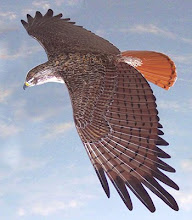To Arrive You Must Walk
When you are on foot, to arrive you must walk. **
Miles Davis: On Green Dolphin Street
This time, there’s no question of freeing yourself from artifice to taste simple joys. Instead there is the promise of meeting a freedom head-on as an outer limit of the self and of the human, an internal overflowing of a rebellious Nature that goes beyond you. Walking can provoke these excesses: surfeits of fatigue that make the mind wander, abundances of beauty that turn the soul over, excesses of drunkenness on the peaks, the high passes (where the body explodes). Walking ends by awakening this rebellious, archaic part of us: our appetites become rough and uncompromising, our impulses inspired. Because walking puts us on the vertical axis of life: swept along by the torrent that rushes just beneath us. What I mean is that by walking you are not going to meet yourself. By walking, you escape from the very idea of identity, the temptation to be someone, to have a name and a history. Being someone is all very well for smart parties where everyone is telling their story, it’s all very well for psychologists’ consulting rooms. But isn’t being someone also a social obligation which trails in its wake – for one has to be faithful to the self-portrait – a stupid and burdensome fiction? The freedom in walking lies in not being anyone; for the walking body has no history, it is just an eddy in the stream of immemorial life. **
Oscar Peterson / Milt Jackson: On Green Dolphin Street
But walking causes absorption. Walking interminably, taking in through your pores the height of the mountains when you are confronting them at length, breathing in the shape of the hills for hours at a time during a slow descent. The body becomes steeped in the earth it treads. And thus, gradually, it stops being in the landscape: it becomes the landscape. That doesn’t have to mean dissolution, as if the walker were fading away to become a mere inflection, a footnote. It’s more a flashing moment: sudden flame, time catching fire. And here, the feeling of eternity is all at once that vibration between presences. Eternity, here, in a spark. **
The Native Americans, whose wisdom Thoreau admired, regarded the Earth itself as a sacred source of energy. To stretch out on it brought repose, to sit on the ground ensured greater wisdom in councils, to walk in contact with its gravity gave strength and endurance.
The Earth was an inexhaustible well of strength: because it was the original Mother, the feeder, but also because it enclosed in its bosom all the dead ancestors.
It was the element in which transmission took place. Thus, instead of stretching their hands skyward to implore the mercy of celestial divinities, American Indians preferred to walk barefoot on the Earth: The Lakota was a true Naturist – a lover of Nature. He loved the earth and all things of the earth, the attachment growing with age. The old people came literally to love the soil and they sat or reclined on the ground with a feeling of being close to a mothering power. It was good for the skin to touch the earth and the old people liked to remove their moccasins and walk with bare feet on the sacred earth. Their tipis were built upon the earth and their altars were made of earth. The birds that flew in the air came to rest on the earth and it was the final abiding place of all things that lived and grew. The soil was soothing, strengthening, cleansing and healing. That is why the old Indian still sits upon the earth instead of propping himself up and away from its life-giving forces. For him, to sit or lie upon the ground is to be able to think more deeply and to feel more keenly; he can see more clearly into the mysteries of life and come closer in kinship to other lives about him. Walking, by virtue of having the earth’s support, feeling its gravity, resting on it with every step, is very like a continuous breathing in of energy. But the earth’s force is not transmitted only in the manner of a radiation climbing through the legs. It is also through the coincidence of circulations: walking is movement, the heart beats more strongly, with a more ample beat, the blood circulates faster and more powerfully than when the body is at rest. And the earth’s rhythms draw that along, they echo and respond to each other. A last source of energy, after the heart and the Earth, is landscapes. They summon the walker and make him at home: the hills, the colors, the trees all confirm it. The charm of a twisting path among hills, the beauty of vine fields in autumn, like purple and gold scarves, the silvery glitter of olive leaves against a defining summer sky, the immensity of perfectly sliced glaciers … all these things support, transport and nourish us.
--Frédéric Gros
A Philosophy of Walking **










<< Home